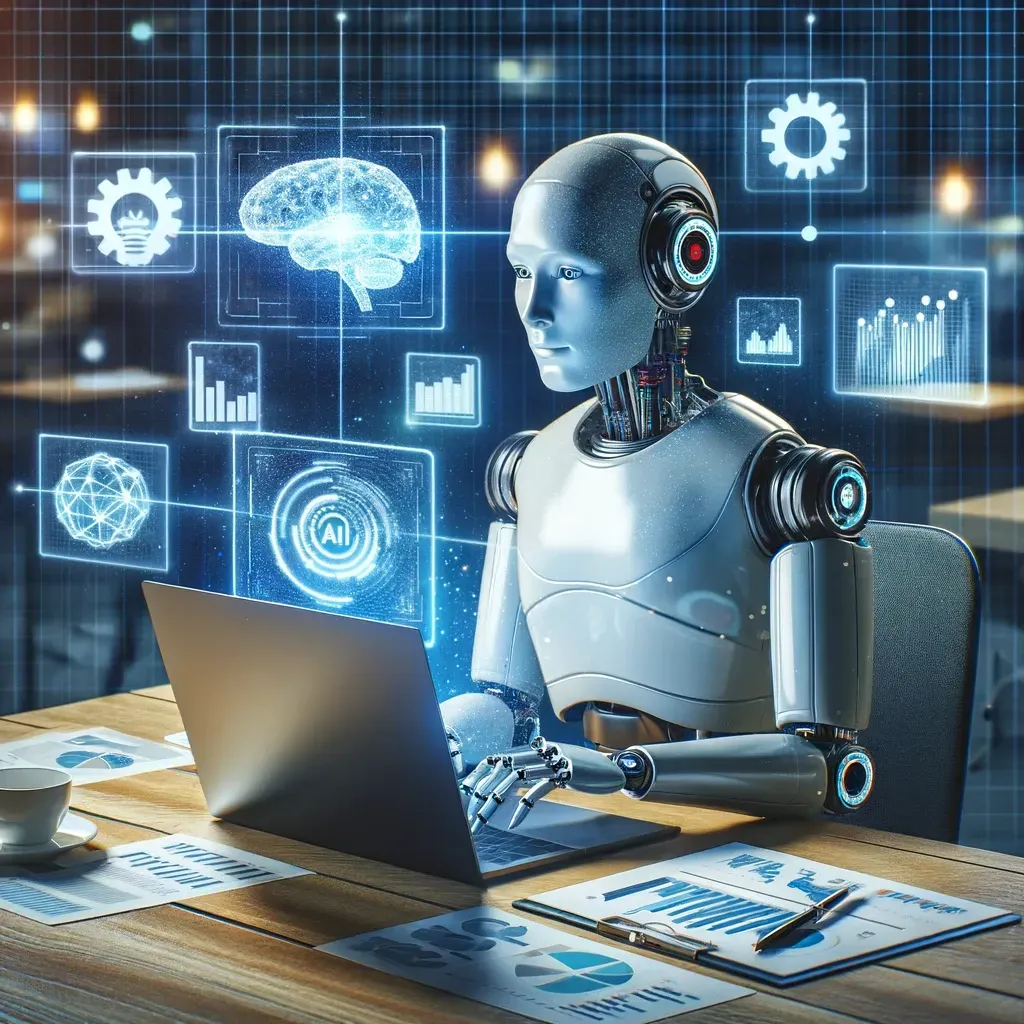Revolutionizing Accounting: The Synergy of AI and RPA
Revolutionizing Accounting: The Synergy of AI and RPA

Revolutionizing Accounting: The Synergy of AI and RPA
In an era where technology is rapidly evolving, the field of accounting is not left behind. Artificial Intelligence (AI) and Robotic Process Automation (RPA) are at the forefront of this transformation, offering accountants innovative tools to enhance accuracy, efficiency, and decision-making. Let's explore how these technologies are reshaping the accounting landscape.
Understanding AI and RPA in Accounting
Artificial Intelligence is a broad field that involves the creation of intelligent machines capable of performing tasks that typically require human intelligence. In accounting, AI can analyze large volumes of data, identify trends, and provide predictive insights.
Robotic Process Automation, on the other hand, uses software bots to automate highly repetitive and routine tasks. In the accounting context, RPA can handle tasks like data entry, reconciliation, and report generation.
The Impact of AI and RPA on Accounting
- Enhanced Efficiency: Both AI and RPA can process data much faster than humans, significantly reducing the time required for various accounting tasks.
- Improved Accuracy: These technologies minimize human errors, ensuring higher accuracy in financial reporting and analysis.
- Data Analysis and Insights: AI algorithms can analyze complex datasets to uncover insights, aiding in strategic decision-making.
- Cost Reduction: Automation of routine tasks reduces the need for manual labor, which can lead to cost savings.
- Compliance and Risk Management: AI can help in predicting potential compliance risks by analyzing trends and anomalies.
Practical Applications in Accounting
- Automated Data Entry: RPA bots can automatically input data into accounting systems, reducing manual effort.
- Financial Reporting: AI tools can assist in creating more accurate and comprehensive financial reports.
- Fraud Detection: AI algorithms can analyze patterns and detect anomalies that may indicate fraudulent activities.
- Tax Preparation: AI can streamline tax filing by automatically organizing and analyzing tax-related data.
- Budgeting and Forecasting: AI can provide more accurate forecasts by analyzing historical financial data and market trends.
Implementing AI and RPA in Accounting Firms
- Identify Suitable Tasks: Start by identifying repetitive and time-consuming tasks that can be automated.
- Choose the Right Tools: Select AI and RPA solutions that integrate well with existing accounting software.
- Training and Adaptation: Train staff to work alongside these technologies and adapt to new workflows.
- Monitor and Optimize: Continuously monitor the performance and impact of AI and RPA and optimize their usage for maximum benefit.
The Future of Accounting with AI and RPA
The integration of AI and RPA in accounting is just the beginning. Future advancements may include more sophisticated AI algorithms capable of providing deeper financial insights and even advising on strategic business decisions. The role of accountants will evolve, requiring a blend of accounting expertise and tech-savviness.
Conclusion
AI and RPA are not just buzzwords in the accounting industry; they are powerful tools that can significantly enhance the efficiency and effectiveness of accounting practices. By embracing these technologies, accountants can transform mundane tasks, focus on strategic aspects of their profession, and provide greater value to their clients. The future of accounting is here, and it is more intelligent and automated than ever before.
Please click here to see how you can create your own automations using ElectroNeek RPA Platform
Contact us
hello@jobdoneautomation.com
Menu
Subscribe to our monthly digest
Let us show you how you could benefit from our services
Join the Newsletter
We will get back to you as soon as possible
Please try again later
All Rights Reserved | Job Done Automation
